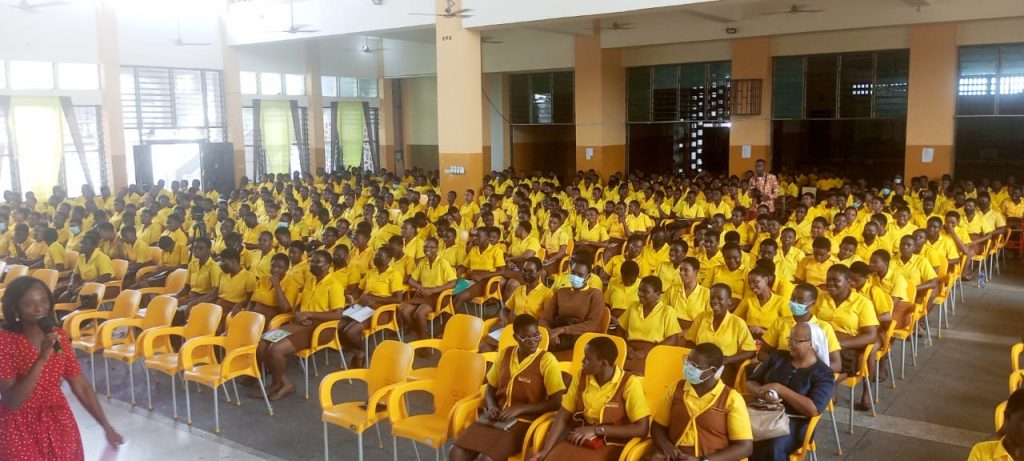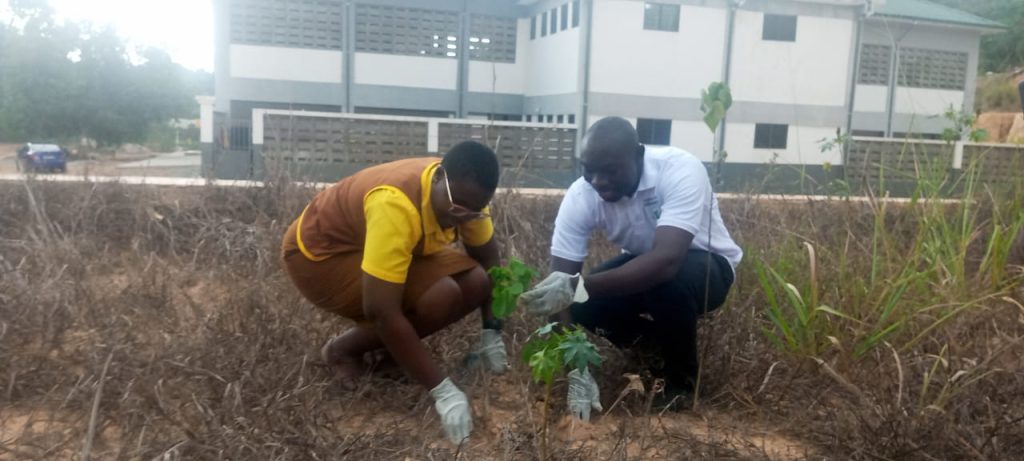By Isaac Arkoh
Cape Coast, April 28, GNA – Climate Change Advisers Ghana (CCAG), an NGO that seeks to mitigate climate change effects and environmental sustainability, has called on the Ghana Tertiary Education Council and the Ghana Education Service to integrate climate education n school curriculum.
Apart from creating awareness of climate change from an early age, it said it will help students to understand and address the impacts of the climate crisis whilst empowering them with the knowledge, skills, values, and attitudes needed to act as agents of change.
Dr Samuel Ayeh Ofori, the Director of CCAG and Lecturer at the Department of Animal Sciences of the University of Cape Coast, made the call at a sensitisation seminar for students at the Holy Child School in Cape Coast on Thursday.
Held under the theme: “Youth in climate action,” he indicated that the change of weather patterns in the country was visible evidence that “global warming has caught up with us.”
In Ghana, Dr Ayeh attributed the climate change drivers to, the burning of fossil fuels (like coal, oil, and gas), which produces heat-trapping gases, sand winning and illegal mining and other agricultural activities, release gases including Carbon (iv) oxide (CO2), Methane (CH4) and Nitrous Oxide (N2O) into the atmosphere.

The effects, he said, manifested in the “widespread flooding and drought, displacing millions of people, sinking them into poverty and hunger, denying them access to basic services, such as health and education, expanding inequalities, stifling economic growth, and even causing conflict.
“The recent tidal wreck at Keta in the Volta Region and Moree in the Central Region are typical manifestations of global warming in Ghana. By 2030, an estimated 700 million people will be at risk of displacement by drought alone,” he said.
Dr Ayeh explained that the Paris Agreement on climate change required that both developed and developing countries cooperate in taking appropriate measures to enhance climate change education, training, public awareness, public participation, and public access to information.
The global temperature has already risen 1.1ºC above the pre-industrial level, with glaciers melting and the sea level rising.
He recommended the adoption of binding policies and laws at the international and national levels to ensure that state corporations, private companies and their subcontractors promoted gender equity and respected global environmental standards.
“Policymakers must implement systems for climate emergency declarations and climate change management plans that involve women and youth in the decision, design and gender equality, climate justice, and inclusive climate governance,” he said.
Dr Ayeh also suggested that farmers should be provided with financial support, capacity building and training in organic, regenerative, and climate-resilient techniques as a measure to mitigate the negative effects of climate change.
He said modern agriculture, food production and distribution are major contributors of greenhouse gases, adding that “agriculture is directly responsible for 14 per cent of total greenhouse gas emissions, and broader rural land use decisions have an even larger impact.”
“Land use changes such as large-scale deforestation, soil erosion or machine-intensive farming methods may all contribute to increased carbon concentrations in the atmosphere. Soil erosion by water, wind, and tillage affects both agriculture and the natural environment.
“Soil loss, and its associated impacts, is one of the most important (yet probably the least well-known) of today’s environmental problems,” he said.

Speaking on behalf of the students, Patricia Eyeson lauded the initiative by CCAG and pledged to support the crusade to mitigate the effects of climate change to protect lives and property.
The student leadership, school authorities and CCAG took turns to plant some trees on campus to buttress their quest to safeguard the environment.
GNA